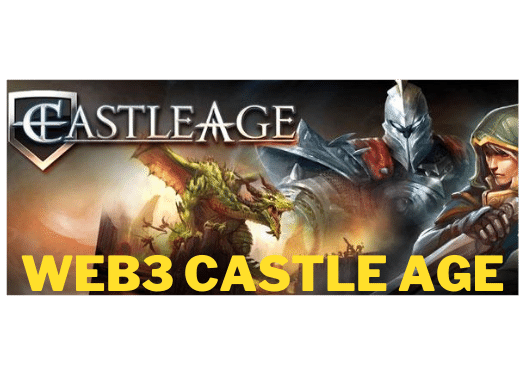The world of content creation has changed dramatically and AI writing tools are now an essential part of every serious writer’s toolkit.
Whether you’re blogging, marketing, or storytelling, these tools can help you produce better content, faster but only if you pick the right one.
In this detailed guide, we’ll dive deep into 9 of the best AI writing tools, exploring their features, strengths, weaknesses, and real-world use cases so you can choose wisely and work smarter in 2025.
Comparison Table: Best AI Writing Tools at a Glance
| AI Tool | Best For | Top Feature | Starting Price (USD) | Overall Rating |
|---|---|---|---|---|
| ChatGPT | Versatile content writing | Custom instructions + Memory | Free / $20 monthly | ★★★★★ |
| Jasper AI | Marketing content | Brand Voice + Boss Mode | From $49 monthly | ★★★★★ |
| GrammarlyGO | Editing & tone adjustment | Contextual rewriting | Free / Premium $12 monthly | ★★★★★ |
| Copy.ai | Social media + ads | Freestyle content tool | Free / Pro $36 monthly | ★★★★★ |
| Writesonic | Blog + SEO content | AI Writer 5.0 + SEO Mode | Free / Plans start $19 monthly | ★★★★★ |
| Sudowrite | Creative storytelling | Sensory-rich writing aid | From $10 monthly | ★★★★★ |
| INK Editor | SEO-driven writing | Real-time SEO optimiser | Free / Paid starts $39 monthly | ★★★★★ |
| Anyword | Conversion-focused ads | Predictive performance scoring | Plans start $49 monthly | ★★★★★ |
| Notion AI | Project content + notes | Summarise + Rewrite inside Notion | Included with Notion Plus ($10 monthly) | ★★★★★ |
9 of the Best AI Writing Tools

1. ChatGPT by OpenAI

Ideal for: Versatile writing, brainstorming, coding help, learning new topics
ChatGPT, developed by OpenAI, has redefined what AI writing can achieve.
It isn’t just a tool it’s an intelligent assistant capable of creating essays, answering technical questions, solving problems, and generating creative stories. Its strength lies in its ability to adapt to almost any writing style with a conversational and natural tone.
Most Interesting Features:
Custom Instructions: Train ChatGPT to understand your tone, style, and preferences.
Multimodal Abilities (Premium): Understands both text and images for richer interactions.
Memory (Upcoming): Remembers previous conversations for more personalized experiences.
Pros:
- Extremely versatile from casual blogs to detailed technical content
- Highly responsive and interactive for idea generation
- Frequent updates with smarter, safer outputs
Cons:
- May hallucinate (produce inaccurate information) if not fact-checked
- Requires strong prompts for the best results
- Limited internet access (unless using third-party plugins)
Expert Tip:
Use ChatGPT for first drafts, brainstorms, and expanding rough ideas but always verify facts manually if accuracy is critical.
2. Jasper AI
Ideal for: Marketers, advertisers, SEO writers, and brand managers
Jasper AI (formerly Jarvis) stands out for its laser focus on marketing and branded content. Built for speed, Jasper helps you write ads, emails, website copy, and long blog posts all while maintaining a consistent voice.
Most Interesting Features:
Boss Mode: Long-form content creation that understands complex commands.
Brand Voice: Save your brand’s style guidelines and apply them automatically to your content.
Integration with SurferSEO: Create content that’s not only well-written but also SEO-optimised.
Pros:
- Highly efficient for marketing-driven content
- Advanced templates for almost every type of business writing
- Collaboration features for teams
Cons:
- Expensive, especially for small startups
- Learning curve for beginners
- Sometimes outputs sound slightly formulaic
Expert Tip:
Use Jasper when you need scalable, on-brand marketing content — and pair it with SEO tools for best results.
3. GrammarlyGO
Ideal for: Professionals, students, and writers who value polished, error-free content
GrammarlyGO extends beyond simple grammar checking it’s a full AI communication assistant.
It rewrites sentences, expands ideas, and adapts your tone automatically, saving hours on editing.
Most Interesting Features:
Tone Rewriter: Instantly adjust text tone (formal, assertive, friendly, etc.)
Content Expansion: Turn bullet points into complete paragraphs effortlessly.
Context Awareness: Customise suggestions based on your writing goals.
Pros:
- Excellent for maintaining clarity and professionalism
- Saves time on editing and rewriting drafts
- Smooth integration across apps (Google Docs, Outlook, Slack)
Cons:
- Primarily a refinement tool — not a content creator
- Full power only unlocked on premium plans
- Slightly limited for large creative projects
Expert Tip:
After drafting content with other AI tools, pass it through GrammarlyGO for professional polish and tone consistency.
4. Copy.ai
Ideal for: Entrepreneurs, social media managers, e-commerce stores
Copy.ai shines when you need short, punchy content fast.
It’s fantastic for social media captions, ad copy, and product descriptions that need to be catchy yet informative.
Most Interesting Features:
Freestyle Tool: Create anything emails, product listings, captions based on simple inputs.
Idea Generator: Breaks writer’s block instantly with fresh topic ideas.
Multiple Language Support: Great for international brands.
Pros:
- Instant content creation with minimal effort
- User-friendly for non-writers
- Flexible for various types of micro-content
Cons:
- Less effective for long-form or technical writing
- Quality varies with the detail of input prompts
- Some content requires significant human editing for depth
Expert Tip:
Use Copy.ai for ads, social posts, and e-commerce — but supplement it with deeper writing tools for blogs and guides.
5. Writesonic
Ideal for: Bloggers, startups, SEO content creators
Writesonic is designed for those who want high-quality blog articles and SEO-focused website content quickly.
Its bulk article feature can help you generate multiple pieces in a fraction of the time.
Most Interesting Features:
AI Article Writer 5.0: Write full blogs from keywords automatically.
SEO Mode: Tailors your articles to boost organic rankings.
Landing Page Generator: Build entire landing pages in minutes.
Pros:
- Strong SEO capabilities for higher Google visibility
- Good balance of creativity and structure
- Affordable plans for freelancers and startups
Cons:
- Longer articles sometimes feel slightly robotic without human editing
- Limited research-backed content generation
- UI could be confusing for absolute beginners
Expert Tip:
Pair Writesonic’s output with a manual SEO audit (using SurferSEO or Ahrefs) to create search-optimised articles that actually rank.
6. Sudowrite
Ideal for: Novelists, poets, screenwriters, creative storytellers
Sudowrite focuses entirely on enhancing creativity not cranking out formulaic blog posts. It acts like a co-author, suggesting metaphors, dialogue ideas, character traits, and sensory-rich descriptions.
Most Interesting Features:
Describe Tool: Add rich, immersive details to your scenes.
Expand Feature: Grow a simple paragraph into vivid narratives.
Brainstorm Mode: Helped authors create bestselling novels!
Pros:
- Boosts creativity and breaks writer’s block
- Adds texture and richness to storytelling
- Designed with real creative writers in mind
Cons:
- Not intended for SEO writing or business blogging
- Subscription costs may be steep for hobbyists
- Needs careful user input to stay on plot
Expert Tip:
Use Sudowrite during the early stages of novel or scriptwriting to enhance your world-building and character development.
7. INK Editor
Ideal for: SEO specialists, growth hackers, serious bloggers
Unlike generic AI writing assistants, INK Editor was built for SEO first, and writing second. It’s the tool you need when you’re targeting rankings and conversions seriously.
Most Interesting Features:
SEO Optimiser: Real-time score based on keywords, structure, and readability.
AI Writer: Creates drafts optimized for specific search queries.
Content Shield: Detects plagiarism and AI content flags.
Pros:
- Ideal for SEO-driven marketing strategies
- Scientific recommendations to boost SERP rankings
- Combines writing, editing, and scoring in one
Cons:
- Can feel technical if you’re new to SEO
- Higher-tier plans are required for full benefits
- Desktop app is slightly resource-heavy
Expert Tip:
Draft in any AI tool, then finalize in INK for maximum SEO impact.
8. Anyword
Ideal for: Conversion-focused marketers, ad agencies, e-commerce brands
Anyword brings data-driven AI writing to the next level.
Instead of guessing what works, it uses real predictive analytics to tell you which headline, product description, or ad copy will perform best.
Most Interesting Features:
Performance Prediction: Scores each variant based on engagement potential.
Persona-Based Writing: Customise tone and content to fit specific customer personas.
Ad Copy Wizard: Perfect for Facebook, Google, and Instagram ads.
Pros:
- Generates high-conversion marketing content
- Gives data you can trust, not just text
- Great for scaling paid campaigns
Cons:
- Premium pricing aimed at professionals
- Content feels robotic if over-optimized
- Not ideal for purely creative writing
Expert Tip:
Use Anyword when you’re spending money on ads — because every word counts when you’re paying for clicks.
9. Notion AI
Ideal for: Project managers, researchers, productivity lovers
Notion AI isn’t a standalone writer it’s an enhancer for everything you’re already doing in Notion.
It helps you summarise research, write project reports, clean up messy notes, and generate new content without leaving your dashboard.
Most Interesting Features:
Summarise Notes: Turn chaotic meeting minutes into action steps.
Brainstorm Features: Rapid idea generation directly in your project space.
Content Rewriting: Tighten or expand text effortlessly.
Pros:
- Fantastic for productivity and research-heavy work
- Integrated directly into Notion for a seamless workflow
- Saves hours on documentation and content planning
Cons:
- Basic compared to specialized writing tools
- Limited depth for storytelling or technical blogging
- Requires Notion Plus plan for full functionality
Expert Tip:
If your team already uses Notion, upgrading with AI will dramatically speed up internal documentation and planning.
Conclusion:
No two AI writing tools are created equal.
Some help you spark creativity, others make SEO easier, and some optimize your marketing performance. Choosing the right tool comes down to your specific needs: speed, quality, SEO, creativity, or conversions.
Mix, match, and explore because, in 2025, your best writing partner might just be artificial intelligence.
FAQs About Best AI Writing Tools
Q1: Can AI writing tools completely replace human writers?
Answer:
No, while AI tools can speed up content production and spark ideas, they still lack the deep critical thinking, emotional intelligence, and creativity that human writers provide. The best strategy is collaboration: AI drafts + human editing.
Q2: Which AI tool is best for SEO blogging?
Answer:
Writesonic and INK Editor are built specifically for SEO. They analyze keyword density, readability, and ranking factors to help your content perform better on Google.
Q3: Are AI writing tools safe to use?
Answer:
Yes, but with caution. Always verify facts, check for plagiarism, and ensure sensitive or personal data is handled securely. Some tools (like INK Editor) even include plagiarism checks.
Q4: What’s the most beginner-friendly AI writing tool?
Answer:
Copy.ai is fantastic for beginners. Its simple prompt system and friendly templates make it ideal if you’re new to AI writing.
Q5: How do I choose the right AI writing tool for me?
Answer:
Focus on your goal:
- Need marketing copy? → Jasper or Copy.ai
- Need blogs + SEO content? → Writesonic or INK
- Need creative stories? → Sudowrite
- Need polished business writing? → GrammarlyGO
- Need all-purpose help? → ChatGPT
Recommended Reading




[…] you would like to explore 9 of the Best AI Writing Tools visit […]
[…] Top 5 AI Tools for Small Business Owners | Ultimate Guide 9 of the Best AI Writing Tools In-Depth Guide […]